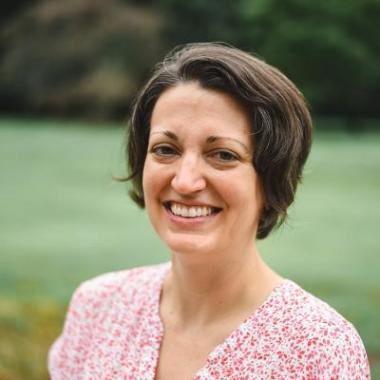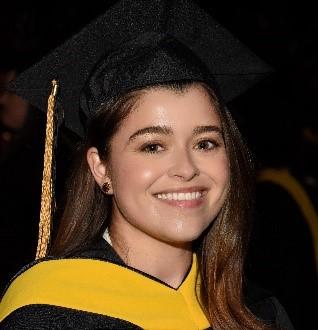The AIChE National Capital Section (NCS) is excited to host Dr. Rebecca Aicher and Ms. Sarah Solomon from the AAAS Center for Scientific Evidence in Public Issues (EPI Center) to speak to the NCS member virtual meeting on Thursday April 29th, 2021. Dr. Aicher and Ms. Solomon will be providing an interactive briefing highlighting the importance of bringing science and engineering knowledge to decision makers in a way that policy and decision makers can understand and harness. One specific case study to be presented focuses on per- and polyfluoroalkyl substances (PFAS), a persistent chemical in the environment, and related standards for PFAS concentration in drinking water. With Earth Week 2021 in the rear-view mirror, it is imperative for scientists, engineers, and policy makers to continue to foster a sense of ownership and collaboration each day. Dr. Aicher and Ms. Solomon biographies and the presentation abstract can be found below.
REGISTER: https://aiche-ncs-meeting20210429.eventbrite.com
This event is free to attend! Please register through the Eventbrite link provided. Upon registration, Eventbrite will email a ticket containing the link for the Zoom virtual conference room.
EVENT AGENDA:
- 6:30 – NCS Announcements
- 6:45 – Presentation by Speakers: Dr. Rebecca Aicher and Ms. Sarah Solomon
- 7:30 – Question & Answer Session
- 8:00 – Close
ABSTRACT: AAAS EPI Center Addressing Emerging Issues at the Science-Policy Interface
The AAAS Center for Scientific Evidence in Public Issues (EPI Center) is designed to deliver clear, concise, and actionable scientific evidence to policymakers and other decision-makers. Scientific evidence can be incredibly useful in policymaking, but too often, it is undervalued and can sometimes be difficult to access or understand. We want to make it easier for policymakers and other decision-makers to access relevant scientific evidence and then integrate that evidence into their decision-making process. The AAAS EPI Center synthesizes and distills scientific evidence on key societal issues in a way that makes it clear how that evidence can inform policymaking and decisions at the local, state, and federal levels.
In 2020, the AAAS EPI Center began providing evidence to local, state, and federal decision-makers on per- and polyfluoroalkyl substances (PFAS). PFAS are a class of thousands of synthetic organic chemicals that have been used since the 1940s in industrial and consumer applications, from clothing and upholstery to food wrappers and firefighting foam. PFAS persist in the environment and bioaccumulate, and studies have found that 97 percent of people have PFAS in their blood. Even small doses of several of the most-researched PFAS can lead to health issues from cancers to increased cholesterol levels to preeclampsia and elevated blood pressure during pregnancy. There are no federally enforceable drinking water standards for PFAS, but several states have adopted or are proposing drinking water standards for specific PFAS. Communities are actively working to protect the health of residents.
BIOGRAPHY:

Dr. Rebecca Aicher is a project director at the Center for Scientific Evidence in Public Issues (EPI Center) leading up the environmental and natural resources projects. Prior to AAAS, she worked on policy-relevant scientific research including topics related to invasive species, restoration of ecosystems, climate change, and water resources at the Northeast Midwest Institute, US Global Change Research Program and EPA, among others. Rebecca was an AAAS Science and Technology Policy fellow from 2011 to 2013 with the EPA and worked on understanding the potential impacts of mining in Bristol Bay, Alaska. She received her Ph.D. in biology at the University of California Irvine and bachelor’s degree in biology from the George Washington University.

Sarah Solomon is a program associate in the Center for Scientific Evidence in Public Issues (EPI Center). Previously, Sarah served as a contractor in the U.S. Environmental Protection Agency's Office of Research and Development. She was a member of the author team for the 2016 report “Hydraulic Fracturing for Oil and Gas: Impacts from the Hydraulic Fracturing Water Cycle on Drinking Water Resources in the United States”, which was awarded EPA’s Gold Medal for Exceptional Service. Her prior work includes policy-related research on climate change, water quality and monitoring, and environmental justice and education. Sarah graduated from Tufts University with a B.S. in Geology and received her master’s degree with distinction in Environmental Sciences and Policy from Johns Hopkins University.
- Log in to post comments
